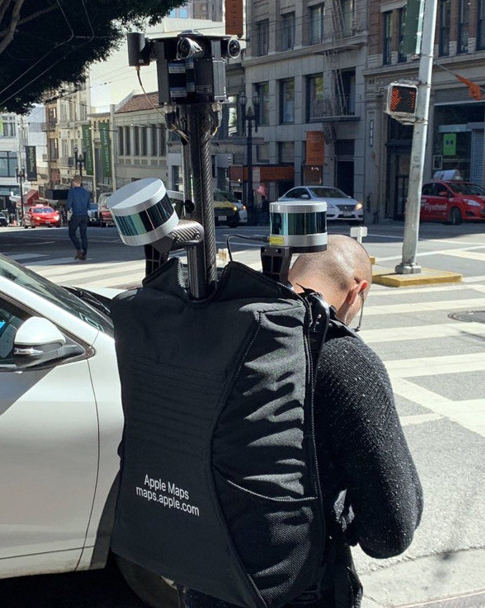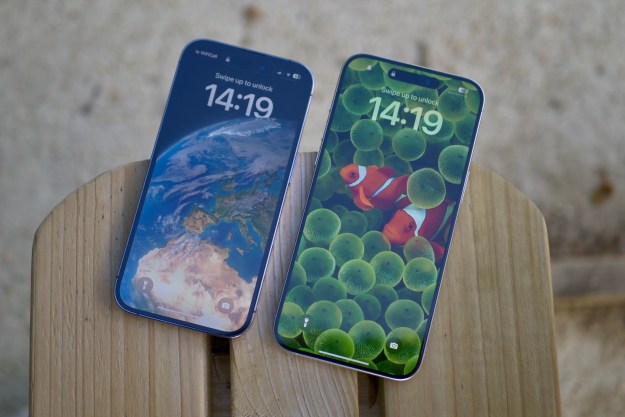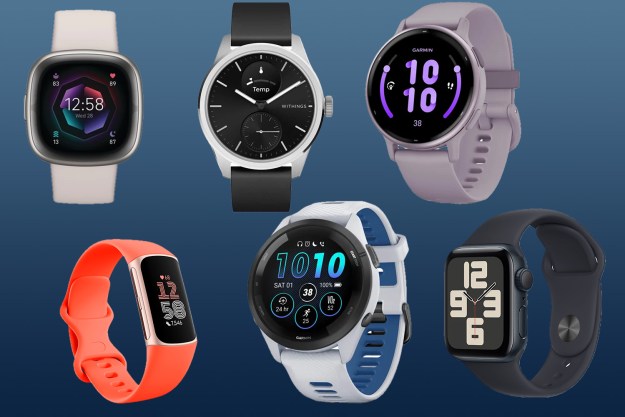Apple Maps has come on leaps and bounds since its disastrous launch in 2012, when it clearly wasn’t ready for showtime.
Improvements across the board mean the app now functions as you’d expect, though there’s no reliable data indicating how many iPhone users have ditched Google Maps in favor of Apple’s effort.
The tech giant has been collecting its own mapping data direct from the street since 2015, but in October, backpack-wearing Apple employees (pictured below) were spotted for the first time collecting data along sidewalks and footpaths. At the time, the company made no mention of the backpacks, which are kitted out with cameras and sensors. This week, however, it’s confirmed their use for the first time.

Aimed at improving Apple Maps’ walking directions along footpaths and walkways, the company revealed on its website that over the next few weeks it will be sending its backpack-wearing team to various locations throughout California, including Los Angeles, San Francisco, and Santa Clara Country, home to Apple’s head office in the city of Cupertino. The latest effort will wrap up on December 23, the company said.
Apple’s website also lists several hundred places throughout the United States and the United Kingdom where it will be deploying its mapping cars over the next couple of months as it continues efforts to gather its own data to add more detail to its maps, and so that it will no longer have to rely on third-party sources.
In an interview with TechCrunch over the summer, Apple’s Eddy Cue, who oversees Maps, said the company was keen to take the app “to the next level,” adding, “We have been working on trying to create what we hope is going to be the best map app in the world [by] building all of our own map data from the ground up.”
Recent efforts to improve Apple Maps include ensuring the app receives updates on a more regular basis so that data for new features like roads and buildings are added soon after they open.
Besides its car- and pedestrian-based teams, Apple is also pulling Maps data from satellites and even iPhones, though the company promises that privacy is in no way compromised, and the data isn’t connected with an individual user.
For a closer look at how Apple Maps stacks up against Google Maps, check out Digital Trends’ piece looking at the differences between the two offerings.
Editors' Recommendations
- Apple is about to do the unthinkable to its iPads
- Nomad’s new iPhone case and Apple Watch band may be its coolest yet
- Apple may stop updating one of its best Apple Watches this year
- Apple just released iOS 17.4. Here’s how it’s going to change your iPhone
- Apple Sports app looks to rule live scores and stats on iOS


